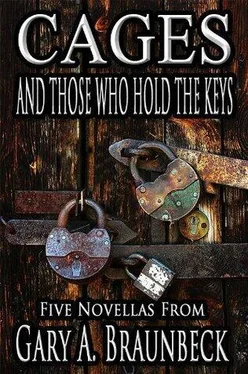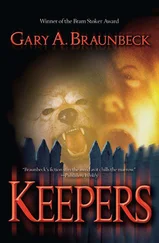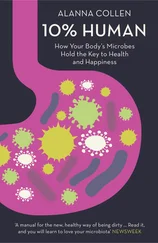The thing stirring in Martin’s brain threw back the covers, reached out, and turned on the light.
Martin rose slowly to his feet and turned to face the painting.
“‘The world is a stone, soldier,’” he said. “‘It holds no thought of long brown girls, dead gulls, vanishing town. The great clock with its golden face, face-down; Beneath these cloud-ribbed skies where stars would rot
if stars were men. No alien gods remain along the
boulevards . . .’”
In the painting, the sky began to brighten ever so slowly, allowing beams of broken sunlight to pierce the clouds and fall on the faces of the people gathered below, the faces, Martin now realized, of other Substruo .
He moved a little closer as the light glided across more faces, and a few of those faces closed their eyes and turned up toward the glow.
Martin continued reciting the next stanza, amazed that he was remembering any of this slight, forgettable bit of verse that he’d written a full decade before meeting Bob that day: “‘In this bleak land Civic ghosts dissemble. The street lamps stand, delinquent angels weeping in the rain.’”
The people in the painting began to move; some toward the back, some to the side, others merely turning to the left or right where they stood, creating an opening, revealing a path.
“‘There are countries untroubled by the seas,’” whispered Martin.
The path was wider, clearer now. A few of the people were looking right at him, smiling; the man with the shepherd’s cap even lifted his hand to wave Martin closer.
“‘There are greener worlds, soldier, and other skies; music in the square, women under flowered trees, and summer slides into soft decay, leaf unto leaf . . .’” The woman in the golden dress, who before had stood in profile, now directly faced Martin, and began to offer her hand. Martin reached out and took hold; it was a delicate hand, satin-gloved, exquisitely feminine, and flooded his arm with warmth.
“‘There are always tomorrows, soldier, and other battles done; this music in the square, these women under flowered trees, as summer slides into soft decay, leaf unto leaf; And larks into falcons rise from the yellow sleeves of eternal day.’” Her sudden soft smile was a song his heart had forgotten, and now remembered, could no longer contain. He stepped in among them.
The shepherd laughed; the girls smiled; the older ones, hunched and slow but not beaten, never beaten, grasped his arm and bid him welcome, bade him thanks.
“I would walk with you a ways,” said the woman whose hand held his, “if you would like.”
Martin could barely find his voice. “Yes . . . I’d like that very much.”
He turned and looked down the path, back out into the cold ruined room where his six-year-old self was still standing.
The little boy lifted his hand and waved.
Martin said: “You’re a fine little fellow.”
“And you are a good and decent man,” replied the boy. “Someday you’ll know that. I’ll keep the door open for you as long as I can.
“Now go stop that miserable fucker in his tracks.”
The woman laughed and pulled Martin away, leading him into a field of trees whose bright blue leaves formed upturned faces, and beneath whose shade deeper shadows danced.
Coming to a stop, the woman turned Martin to face her and kissed him firmly on the lips. “Just so you know, his favorite book was Alice in Wonderland .” Martin looked at the dancing shadows, that had now stopped, forming a deep, dark circle beneath the trees. “Have you your weapon, still?” asked the woman. Martin shook the crowbar from his sleeve and held it up.
“‘There are always tomorrows, soldier, and other battles done,’” said the woman, kissing Martin once again. “Might I suggest you remember the old rule of tuck-and-roll?”
“What are—?”
He never finished the question, because Gold Dress gave him a playful push backward, and before he could regain his balance to stop it, he spun around and was falling down the hole made by the stilled dancing shadows.
I’m finally flying , he thought as he dropped downward, arms out at his sides, legs behind him.
It took perhaps fifteen seconds for him to reach the floor, and by then he had pulled himself into a ball, legs bent to lessen the severity of the landing, and when he hit, he hit hard , but he remembered to tuck-and-roll, and when he came up again, when he stood, his entire body still thrumming with the echoed impact of the landing (pain, yes, no doubt about that, but muffled, waning), he took only three seconds to steady himself and pull in a deep breath before running forward, toward the marbled doorway only a few dozen yards away, the magnificent marble doorway into whose columns were carved whimsical figures of monkeys, serpents, lions, butterflies, Hindu- and Greek-inspired deities, and figures who bore so close a resemblance to the circus Tumblesands Martin almost expected them to step forward and take a bow.
The entablature above the doorway proclaimed:
THE MIDNIGHT MUSEUM
Afternoon Tours Available
“Funny,” he said, then—smacking the crowbar against his hand to assure himself of its weight and power—stepped through.
The floor was a highly-polished chessboard of alternating black-and-white marble tiles whose configuration, coupled with the incredible height of the ceiling, gave the interior an almost-dizzying forced perspective, but despite the bright tract lighting, the large wall-mounted video monitors (all of which were currently displaying electronic snow), and the enormous oval skylight set into the center of the cavernous ceiling, it was a dim-spirited place, a terrible place, a place where gigantic tumors squatted in fossilized silence, where syphilitic skulls stared out from glass cases, and where a pair of tubercular torsos encases in bulky Lucite squares sat atop short ersatz-Roman columns, one on each side of the entrance to the innumerable displays—among which a quick glance would find: infected eyes; rows of malformed infants in chemical-filled Plexiglas coffins; sliced cross-sections of human faces; a baby without sexual organs; a colon grown to seven times normal size; a plaster cast of Siamese twins, made after death, with armpit hairs in the casting; a special display centering around a nameless man who died in 1897 when the tissue connecting his muscles mutated torturously into bone; something called “The Soap Lady”—a body buried in soil possessing rare properties that turned her corpse into adipocere, her mouth open as if she’d died calling out the name of some long-forgotten love; the skeletons of an eight-foot giant and a three-foot dwarf ( The remains of an old magic man and his ungrateful apprentice? Martin wondered); and the obscene death-mask of a little boy whose grotesque facial cleft had turned him into a human gargoyle. No sound. No movement. Death inviting the viewer to pause, so as to better esteem the agonizing poetry of its more creative handiwork.
Unable to absorb all of it at once, Martin focused his eyes straight ahead, on the sign reading Rights of Memory.
He swallowed, took a deep breath, and moved toward it.
Upon entering, the first thing he saw were rows upon rows of bookshelves crammed to overflowing with ancient volumes that reached from the floor to the ceiling.
The books were all three times the size of any encyclopedia he’d ever seen; stamped in gold on their spines were words and sigils he didn’t understand. The smell of mildew wafting down from their pages filled the air, even though only a few of them lay open, face-down, on nearby reading tables.
So Gash has been passing the time with a little light reading .
Читать дальше












